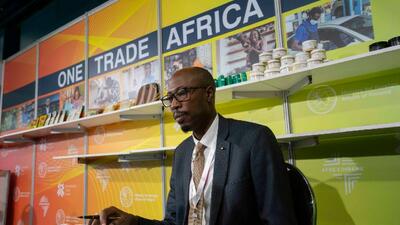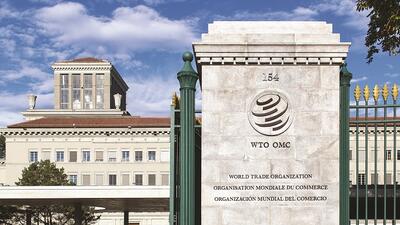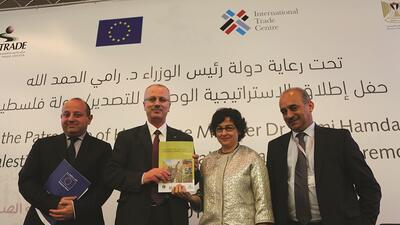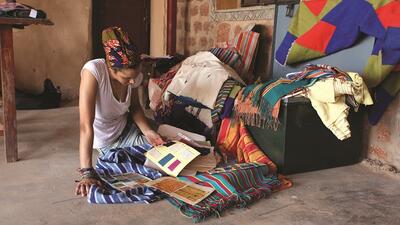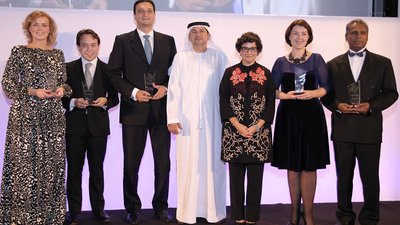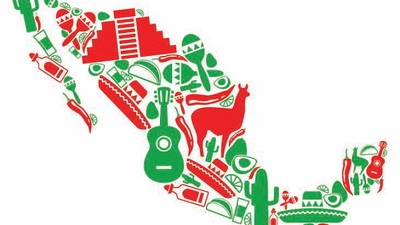How Germany aims to raise standards in supply chains
With the advance of globalization and trade liberalization, developing countries are an ever more integral part of global supply chains. Yet the value created does not always translate into greater general prosperity in these countries, particularly the poorer ones. The cause is to be found in inadequate social standards. In many cases workers are not paid a living wage and no trade unions exist. Workers’ health and lives are at risk because of inadequate or non-existent rules governing the structural design of buildings, fire precautions or the handling of toxic chemicals. That was made dramatically clear by the Rana Plaza tragedy in Bangladesh, which claimed the lives of well over a thousand people.
These conditions pose a great challenge to those concerned with framing responsible development policies to help ensure decent working conditions for people producing goods and delivering services across the globe. We must not allow them to be exploited and we must ensure they live in a healthy environment.
The German government began in late 2013 to step up its efforts considerably in this regard. Focusing on the textiles sector, where supply chains a particularly complex, Germany is piloting initiatives to show how standards can be improved and met.
SUSTAINABLE TEXTILES PARTNERSHIPGermany’s Development Ministry is employing a three-pronged strategy. The first step was to set up the multi-stakeholder Partnership for Sustainable Textiles. The government called on all major German companies engaged in producing and trading in textiles; international companies operating in the sector in Germany; and non-governmental organizations, as well as trade unions and government representatives to join the scheme. Its aim is to improve the conditions under which textiles are produced. The partners discussed the minimum ecological and social standards that need to apply to the supply chain for textiles.
Drawing on the expertise of all the stakeholders in the partnership and on existing international networks, they came up with a comprehensive list of ambitious yet achievable aims. Some of these concern social aspects of production, such as prohibition of child labour, forced labour and wage slavery, and the payment of living wages. Others deal with fire precautions, building safety and the safe use of chemicals. Environmental aspects are also included. The companies that signed up to the partnership have committed to ensure compliance with these standards at every stage of their supply chain.
The German government is also, through its development cooperation efforts, supporting measures in producer countries. In Bangladesh and Cambodia, which are major producers of textiles, Germany has launched large-scale programmes for the introduction of standards. Training courses are offered to businesses on the issues of fire precautions and building safety and the countries are being helped to establish authorities for setting protective regulations and monitoring compliance. Support is being provided for the establishment of trade unions and works councils together with the International Labour Organization.
The third step is boosting demand for goods produced in fair conditions. The first thing that needs to be done here is to provide consumers with absolute clarity about how items have been made. Germany invited specialists from government, trade unions, standard-setting organizations and business associations to draw up a list of criteria that should apply to all sectors, not just the textiles industry. They then examined existing labelling schemes to see how closely they matched.
As well as looking at what aspects the labels cover, they also looked at systemic aspects; in other words, how the label operates and, in particular, how compliance with its claims is monitored. Collaboration with the International Trade Centre (ITC) has been of particular importance here. The ITC database on existing labels has been expanded to include all the main criteria identified. That information has been taken as the basis for a new internet portal – www.siegelklarheit.de – which lists and evaluates all existing labels. In future, the plan is to look at labels for products such as food, timber and paper.
The companies involved in the Textiles Partnership account for more than 50% of the German market for textiles. Germany is investing ever more development funding in projects dealing with standards. The siegelklarheit.de website is proving popular. Yet national initiatives like this cannot achieve sustainability in all global supply chains on their own. It was important, then, to use Germany’s 2015 G7 presidency to put standards firmly on the agenda of other major industrialised nations.
TRANSPARENCYAt the G7 Summit in Schloss Elmau, Germany, all members committed to launch multi-stakeholder initiatives for the textiles sector and to promote transparency efforts. They also resolved to considerably increase the volume of support in the field of standards in their development cooperation with producer countries. Small and medium-sized enterprises in industrialized countries are also to be helped monitor compliance at all stages of their supply chains. Industrialized countries and private companies will pay into the Vision Zero Fund, which will be used for measures aimed at preventing workplace accidents. Peer reviews of national complaints mechanisms will ensure that workers who continue to experience abuses of their rights despite these measures can have their cases heard more easily and more quickly.
A conference of G7 labour and development ministers held in Berlin in early October set out the next steps towards implementing these plans. Similar initiatives are also being developed at the European Union level. This shows that the issue of standards in supply chains has gained a lasting place on the development agenda.
A great deal has already been achieved. However, we are still only just starting on the path towards shifting from free trade to fair trade. The goal is to create a brighter future for millions – if not billions – of people in countries where much of the consumer goods we purchase are being produced but where the people themselves have not sufficiently benefited from this value creation.






